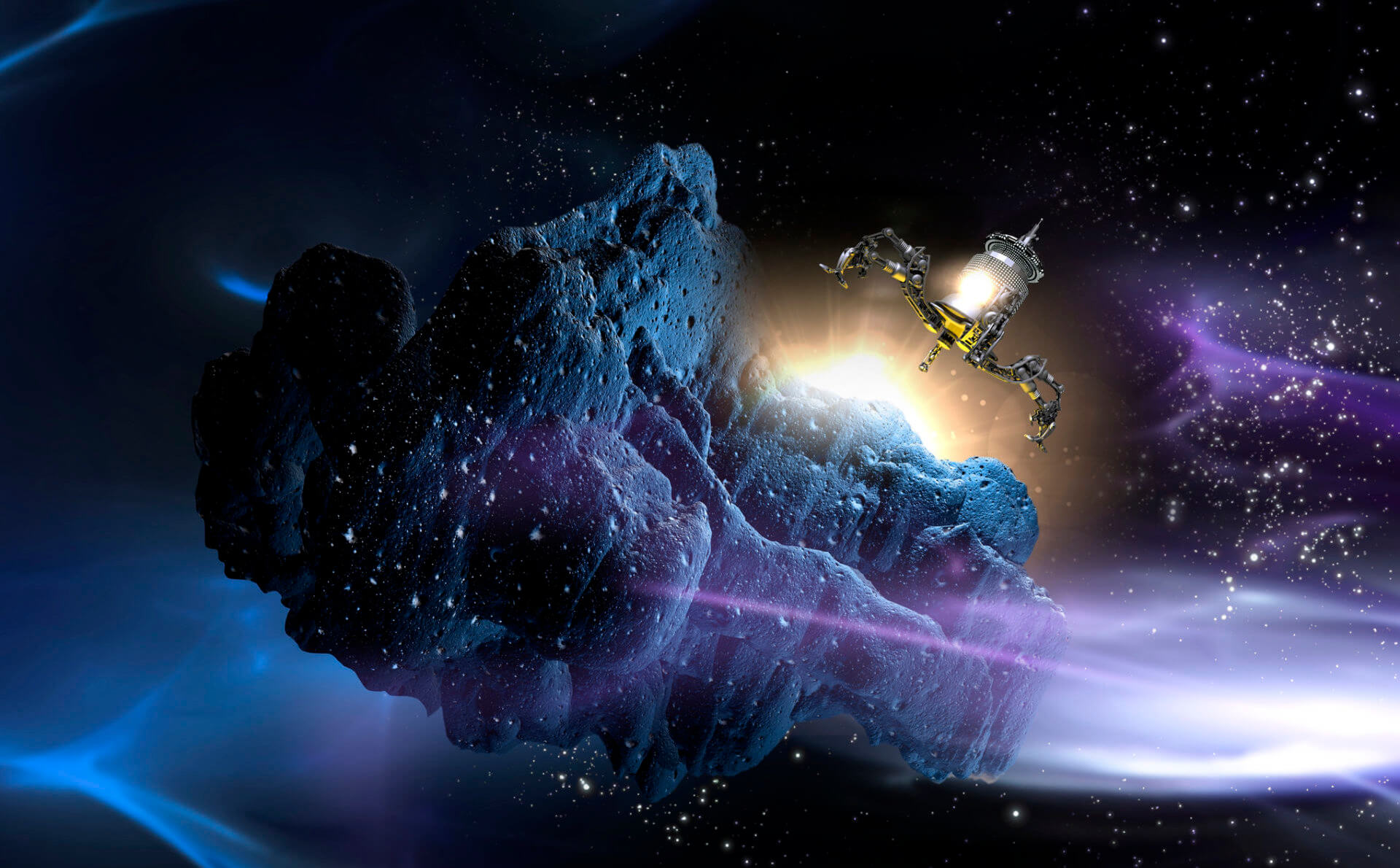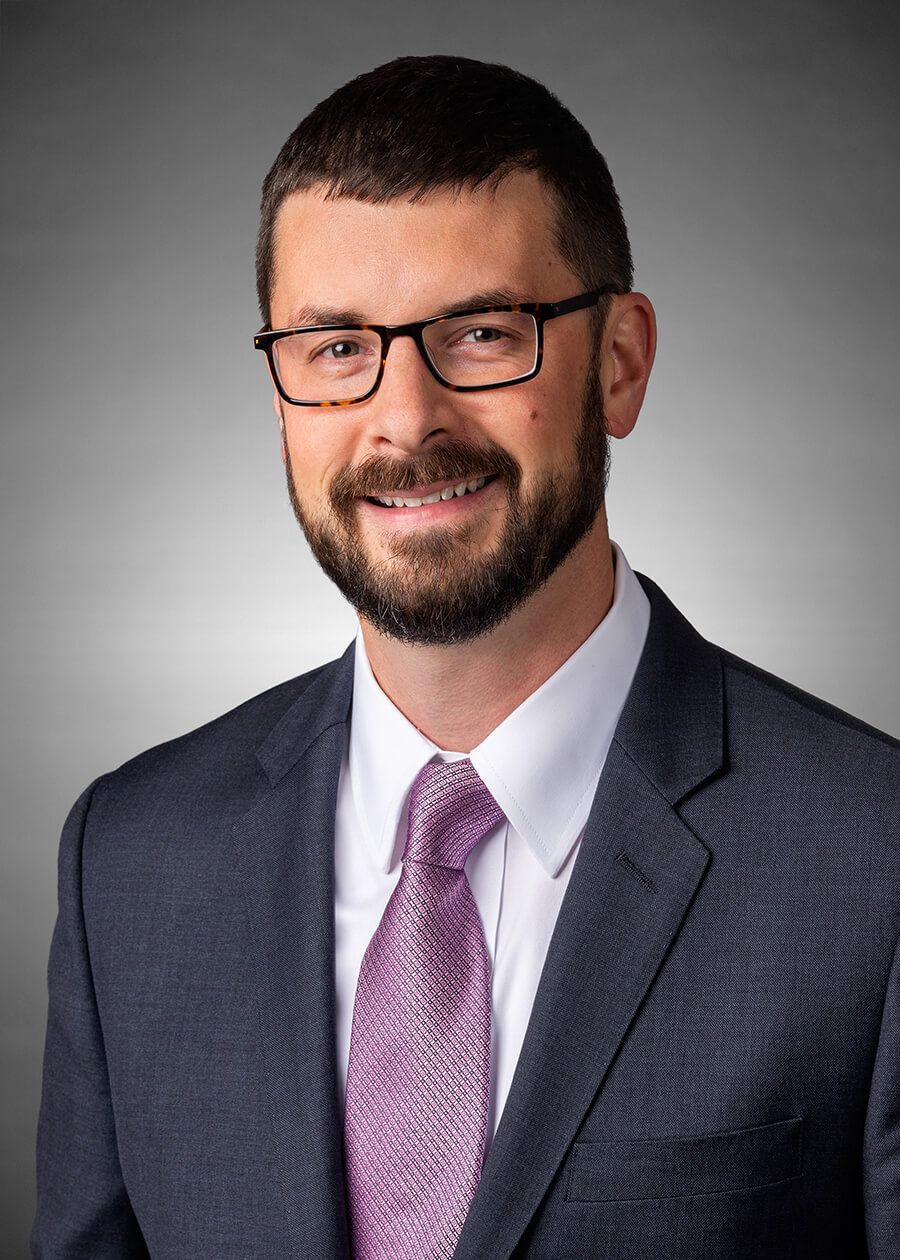Mister “Astropreneur”

ON THE CHILLY MORNING of Sept. 29, 2004, Joe Landon stood in the parking lot of the Mojave Air and Space Port and waited for history to be made.
Landon, M.S. AE ’03, had come to the desert to see whether SpaceShipOne could reach near-orbital space. If the reusable spacecraft with a human pilot onboard could successfully launch twice in a two-week period, entrepreneur-designer Burt Rutan and his company would win the $10 million Ansari X Prize, becoming the first nongovernmental entity to accomplish such an ambitious task.
As Landon watched the craft climb toward the heavens, his future suddenly became clear. He would become an “astropreneur” — that is, a space entrepreneur — and help grow the burgeoning space sector. Landon, a satellite systems engineer at the time, returned to his Boeing office cubicle in El Segundo, California, and made a pledge to himself: “I need to be out there, not in here.”

In the years since, Landon co-founded an investment firm that finances promising space-related businesses and held an executive position in a company that mined asteroids. Today, he is a vice president in a major space division at aerospace and defense giant Lockheed Martin.
“Without question, Joe was not only early to the entrepreneurial space industry, but he has been a leader from day one,” said Dylan Taylor, CEO of Voyager Space Holdings, a global holding company and leader in space exploration.
All the while, Landon has refined and advanced his vision of a brave new world beyond Earth. “What I’d like to see is that we create a stand-alone, space-based economy in space around Earth and out to and including the moon that really thrives and provides new opportunities for business — a true economy where people are living and working,” said Landon, a member of the prestigious World Economic Forum’s Global Future Council on Space.
His commitment to funding, building and managing space-related ventures has arguably moved humanity one step closer to transforming his starry-eyed dream into a reality.
A year after deciding to become an astropreneur, Landon left Boeing for Harvard Business School. After graduating with an MBA in 2007, Landon co-founded Space Angels, an angel investment firm.
“After SpaceShipOne, investors started looking at space companies and were trying to figure out how they could invest in them. And there were more entrepreneurs looking to build new space companies,” he said. “Space Angels was really meant to bring those two groups together — to connect investors and entrepreneurs.”
The firm financed dozens of startups, including those in newer markets such as human spaceflight, microgravity research and space habitats. In time, Space Angels became the country’s leading source of capital for early-stage space ventures.
Among them was an asteroid mining company called Planetary Resources, for which Landon served as chief financial officer. Founded in 2010, Planetary developed technology to find and mine asteroids for their resources, including water and building materials. The firm even launched two spacecraft into Earth’s orbit to test different technologies. It was acquired by Consensys in 2018.
“We did some important work,” said Landon, who credits USC Viterbi for providing him with “the foundation of technical depth and understanding of in-space systems that has helped me throughout my career.”
After the acquisition of Planetary, Landon took a position at Lockheed Martin, where space remains foremost on his mind. As vice president of advanced programs development, Landon oversees R&D and strategy for human and robotic deep space exploration. His group recently received a contract from NASA to demonstrate how to store and manage liquid hydrogen in space. Such a technological feat would make it possible to remove ice from the moon and store the oxygen and hydrogen for use as fuel.
Landon admits to having an ulterior motive in his longtime quest to make human space travel and space living affordable and ubiquitous.
“I would be thrilled to be able to put my feet on another planet or the moon. That would really be the ultimate destination,” he said. “I am optimistic that it will happen.”



